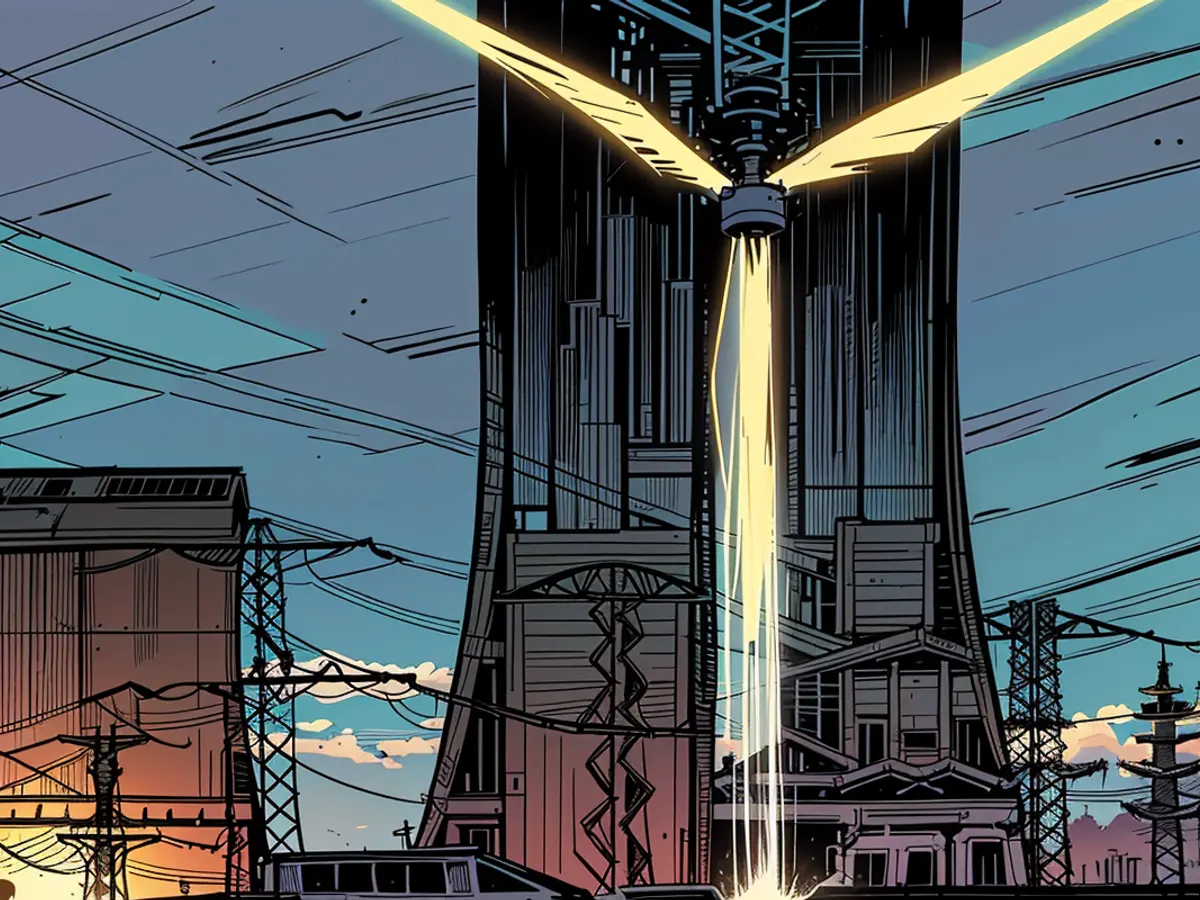- Environmental alterations in North Rhine-Westphalia: water scarcity, intense downpours, sweltering heatwaves
Alterations in weather patterns, with drier spells and heavy rainfall taking turns more frequently than before: Researchers have examined the influence of global climate change on North Rhine-Westphalia. The State Environmental Agency (Lanuv) has recently disclosed the outcomes.
The anticipated average rainfall isn't expected to fluctuate significantly, but there will be more frequent instances of both torrential downpours and dry spells. The cause is the weakening jet stream, leading to instances where rain clouds linger in a particular area, releasing heavy rainfall, while other regions remain dry.
Three Scenarios
"Current evaluations indicate that the existing global climate change mitigation efforts are not adequate to restrict global warming below two degrees," explained Lanuv President Elke Reichert. "If no additional actions are taken, we are currently forecasting a global temperature rise of approximately three degrees by the end of the century compared to pre-industrial times."
This has implications: "We are witnessing and experiencing a rise in weather anomalies that are a result of climate change. This includes more heavy rain events as well as warmer or dry spells," said Reichert.
The advice is to establish strategies for adapting to climate change, without relying on the most favorable scenario, cautioned Reichert. Only if the "climate change prevention scenario" materializes - that is, all goals of the Paris Climate Agreement are accomplished on time - will it remain at an increase of less than two degrees compared to pre-industrial levels. The "moderate scenario" will result in a global warming of approximately 2.4 degrees Celsius (1.7 to 3.2 degrees Celsius). The "business as usual" scenario will warm the Earth by approximately 4.3 degrees Celsius.
NRW Average Temperature: From 8.4 to 13.7 Degrees
The average air temperature in NRW was 10 degrees Celsius between 1991 and 2020, which is already 1.6 degrees warmer than between 1881 and 1910. In the best-case scenario, the average air temperature in NRW will remain at the current level by 2071 to 2100, according to experts. In the "business as usual" scenario, it could rise to up to 13.7 degrees Celsius.
The number of days with temperatures exceeding 30 degrees in NRW will increase from 8 to 28 days per year by the end of the century under the "business as usual" scenario. Nights with temperatures above 20 degrees, currently a rare occurrence of one or two times per year, are likely to become more common and occur several times a year.
Heatwaves, defined as three consecutive days with at least 30 degrees, were previously recorded in NRW about every three years. Along the Rhine and Ruhr, they could happen up to five times a year.
Precipitation
The year 2023 recorded a total precipitation of 1,198 liters per square meter, making it the wettest year on record, and with 11.2 degrees, it was also the warmest. Forecasts suggest no significant change in annual precipitation amounts, but summer precipitation is likely to decrease and winter precipitation to increase. As warmer air can hold seven percent more water vapor, this means more thunderstorms and heavy showers.
Regional Differences
The impacts will vary in different regions of the state. For densely populated areas along the Rhine and Ruhr, which are already some of the warmest regions in Germany, heatwaves will be particularly relevant.
For mid-mountain regions, heavy rainfall will pose a significant issue due to the risk of flash floods, soil erosion, and landslides.
Conversely, during longer dry periods, particularly in the Münsterland and Ostwestfalen-Lippe regions, there's a risk of water scarcity.
The risk of wildfires in NRW, outside of mid-mountain regions, will increase significantly. Scientists recommend numerous adaptation measures: from flood protection to greener cities and more resilient forests.
Climate Change in NRW
The predicted rise in weather anomalies includes more frequent occurrences of both heavy rainfalls and dry spells due to climate change. Under the "business as usual" scenario, the average air temperature in NRW could rise to up to 13.7 degrees Celsius by the end of the century.








